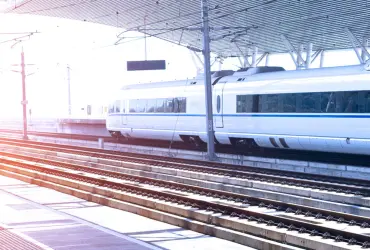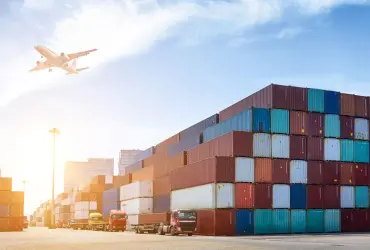Turn All Business Travel Into a Holiday
with a Team That Understands
What You Need
Upcoming Trade Shows in Germany for Logistics & Transportation

IT-TRANS 2026, Karlsruhe, Germany
3 - 5 Mar 2026

LogiMAT 2026, Stuttgart, Germany
24 - 26 Mar 2026

InnoTrans 2026, Berlin, Germany
22 - 25 Sep 2026

transport logistic 2027, Munich, Germany
26 - 29 Apr 2027

Breakbulk Europe 2020, Bremen, Germany
Coming soon
Germany remains an undisputed leader in the European logistics and transportation industry, and is looking forward to a fruitful decade on account of the country’s substantial investment in the expansion of its infrastructure. In 2022, the German government allocated $12.8 billion to federal highways and $1.81 billion to waterways. This investment acknowledges the high-earner status of the logistics sector. The German government’s investment in transportation infrastructure reflects its intent to strengthen connectivity and promote sustainability. In 2022, Deutsche Bahn (DB), alongside the federal, local, and regional governments, also invested $14.51 billion to modernise the rail network with the express aim to reduce emissions as well as alleviate road congestion. The project focuses on upgrading rail infrastructure in several states, including Lower Saxony, Hamburg, Bremen, Mecklenburg-Western Pomerania, and Schleswig-Holstein. The improvements are expected to contribute to a more environmentally friendly logistics industry and bolster the country’s ability to support increasing freight volumes.
Germany’s logistics and transportation industry is not without its hiccups as the rising fuel prices can attest. The country’s diesel prices, for example, hit $1.66 per litre in January 2022, reflecting a nearly 37-cent increase compared to the same period in the previous year. This trend has driven up transport prices across Europe, with freight rates reaching all-time highs by the fourth quarter of 2021. High inflation rates and increased oil prices have further contributed to these rising costs, challenging both logistics providers and consumers. Despite these pressures, Germany has seen a decline in gas consumption. In 2023, gas demand in Germany dropped by 5% compared to 2022 and by 17.5% compared to the 2018-2021 average. The decrease in gas consumption is indicative of Germany’s gradual shift toward more sustainable energy solutions, as the country seeks to reduce reliance on fossil fuels and lower emissions.
GET A FREE QUOTE
Looking for a hotel accommodation for particular trade show or exhibition.
Send us a general enquiry and we will find the best options for you
Send us a general enquiry and we will find the best options for you